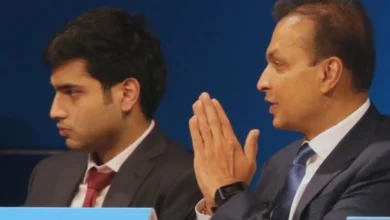Parents, Not Pixels: Who’s Really Shaping Society’s Values?

The controversy surrounding the Ranveer show has put the spotlight on online content and its influence on society. Accusations abound, with many pointing fingers at the creators and platforms, claiming they are responsible for moral decay and bad behavior among the youth. But in all the noise, one critical question remains largely unspoken: what role do parents play in this equation? Can we honestly claim that the creators of online shows alone hold the key to shaping a child’s character, ethics, and decisions? Or is this another case of deflection, a convenient way to avoid acknowledging deeper responsibilities closer to home?
The Ranveer Show Controversy: A Convenient Scapegoat?
When something goes wrong in society—be it rising aggression, dwindling manners, or questionable life choices—it’s easy to blame what’s immediately visible. And what’s more visible than popular online content? With millions of viewers tuning in, platforms like the Ranveer show become natural targets. “These shows,” critics say, “are destroying our values.”

Yet, this line of reasoning ignores a fundamental truth: no online content exists in isolation. A child, a teenager, or even a young adult doesn’t simply stumble upon these shows and instantly lose all moral grounding. There’s a backdrop, a foundation—or lack thereof—that sets the stage long before a screen lights up. And that backdrop is often the home.
Are Parents Doing Their Homework?
When we discuss the influence of content creators, we have to ask: where were the parents? The parental role in a child’s formative years goes beyond providing food and shelter. It’s about teaching right from wrong, instilling values, and creating an environment where critical thinking can flourish. It’s about setting boundaries—yes, even in the digital age.
The Supreme Court once made headlines by emphasizing that parents bear some responsibility for the alarming number of student suicides in Kota, Rajasthan. In a landmark observation, the Court pointed out that relentless parental pressure, lack of emotional support, and unrealistic expectations contribute to the tragic outcomes we see today. This is a stark reminder that the household is not exempt from blame when things go awry.
When Teachers Raise the Red Flag
Teachers have long lamented the decline in parental involvement. A retired educator recently spoke out, citing numerous examples of how parents fail to support their children’s education. Kids show up to class without basic supplies—no pencils, no notebooks—but sport the latest branded shoes. Who steps in to fill the gap? Teachers. They buy materials out of their own pockets. They try to instill discipline in children who come from homes where manners, respect, and work ethic were never taught.
This isn’t a rant against parents but a call to look in the mirror. When schools struggle, we often blame the curriculum, the teachers, or the administrators. But as the educator pointed out, schools don’t exist in a vacuum. If parents aren’t engaged—if they don’t show up for parent-teacher meetings, don’t ensure their kids complete homework, don’t enforce study routines—then how can we expect schools to succeed?
The Digital Age Doesn’t Come with a Free Pass
In the digital age, parenting has become more complex, but it hasn’t absolved parents of their responsibilities. With phones, tablets, and laptops now acting as extensions of ourselves, it’s tempting for parents to let these devices serve as babysitters. However, allowing children unrestricted access to online content without guidance or discussion is a recipe for trouble.
If a teenager regularly consumes controversial or provocative online content, is it solely the fault of the creator? Or is it also the result of unchecked screen time, a lack of parental curiosity about what their child is watching, and no meaningful conversations about the content’s messages? Parents who are deeply involved in their children’s digital lives—who ask questions, set limits, and encourage critical thinking—help create a buffer between their kids and potentially harmful material.

Free Speech vs. Free Rein
One of the hallmarks of the digital world is free speech. Content creators, including those behind the Ranveer show, operate in an environment where opinions can be expressed freely. That’s not inherently bad. In fact, the ability to debate, question, and explore various topics is what makes the internet a valuable resource.
But freedom of expression doesn’t mean freedom from responsibility. This is where the parental role becomes vital. Parents can’t rely on creators or platforms to do the job of moral guardianship. If a child is exposed to controversial content, it’s the parents who should engage in discussions, explain context, and help the child understand different perspectives. In the absence of such engagement, the content becomes a one-way conversation—unquestioned, unfiltered, and potentially misunderstood.
From Classroom to Living Room: A Shared Responsibility
The retired teacher’s plea for parental involvement wasn’t a blanket indictment; it was a call for partnership. Just as educators need parents to play an active role in their children’s schooling, society as a whole needs parents to be actively involved in their children’s digital and cultural education. Blaming online shows or social media for every societal ill is not only unfair—it’s counterproductive.
The Ranveer show controversy may have sparked a debate, but it’s part of a larger pattern. When children act out, when societal norms seem to erode, we instinctively look for external culprits. But what if the root cause is closer to home? What if it’s not about the content itself but the environment that allows that content to have undue influence?
The Elephant in the Room
By now, it should be clear that parents can’t afford to remain passive. Whether it’s guiding a child through their school years or helping them navigate the vast, unregulated digital landscape, parental involvement is crucial. And when that involvement is absent, the consequences ripple outward, affecting not only individual families but society at large.
At The End: The Mirror Doesn’t Lie
The Ranveer show controversy, like many before it, serves as a mirror. It reflects not just the challenges of free speech, online content, or digital platforms, but also the gaps in our parenting. It’s easy to point fingers at a screen. It’s much harder to look inward and ask: What could I have done differently?

As society grapples with the influence of online content, let’s not lose sight of the foundational role that parents play. Parents are the first line of defense, the original guides, and the most immediate role models. If they abdicate that role—if they fail to engage, to question, to set boundaries—then no amount of regulation, censorship, or public outrage can truly fix what’s broken.





